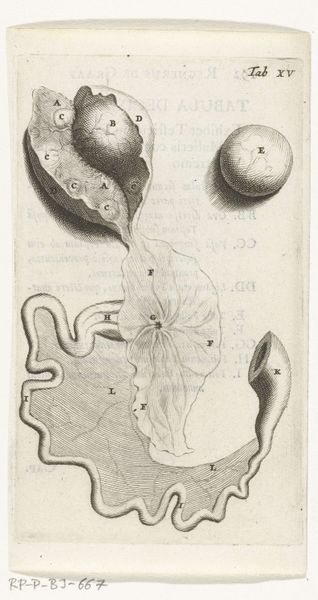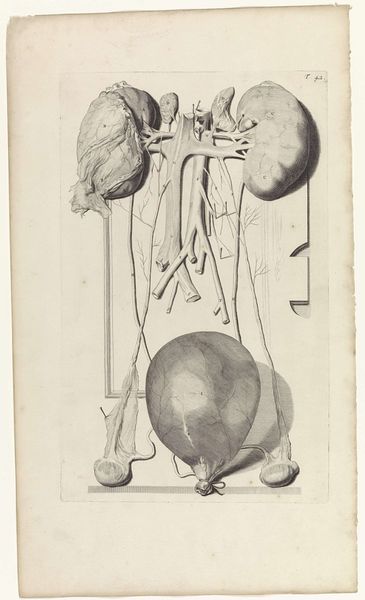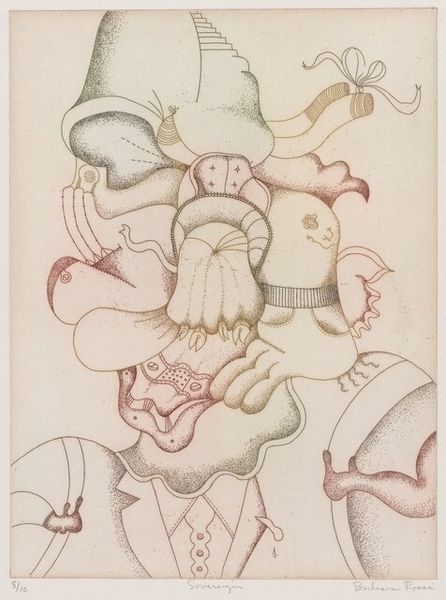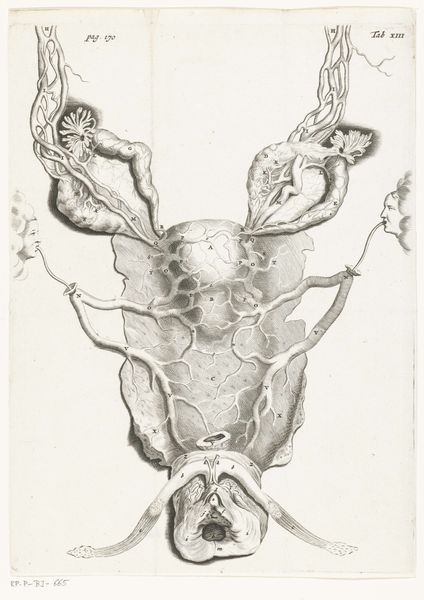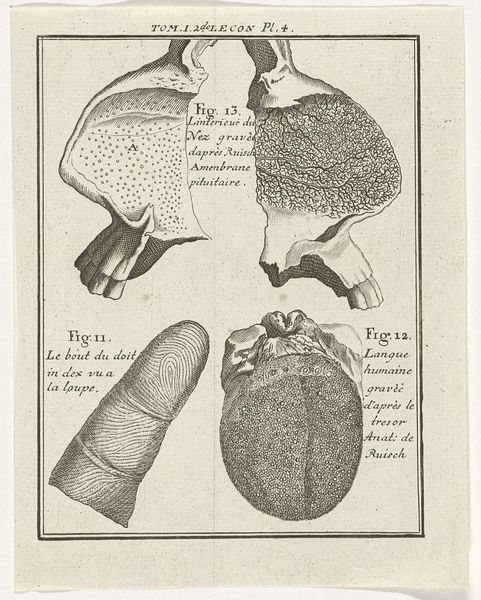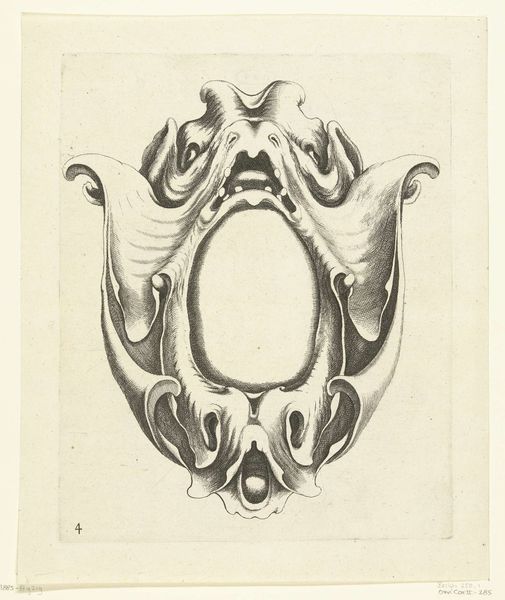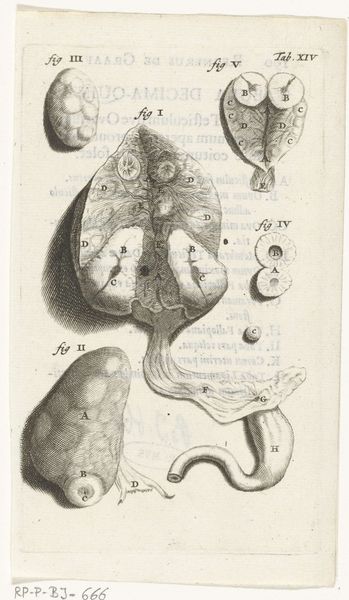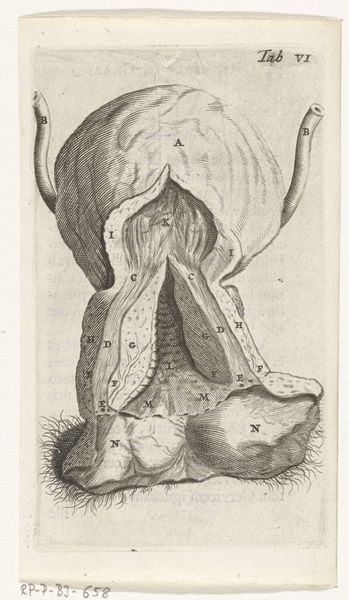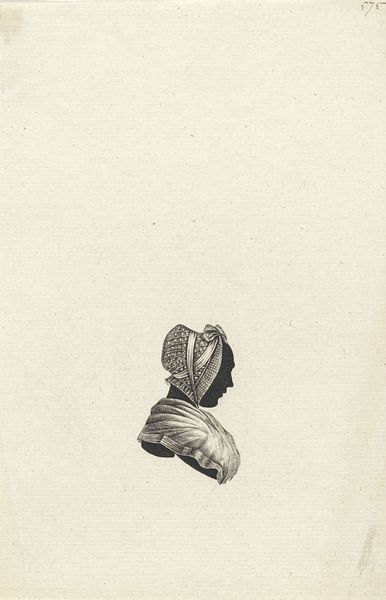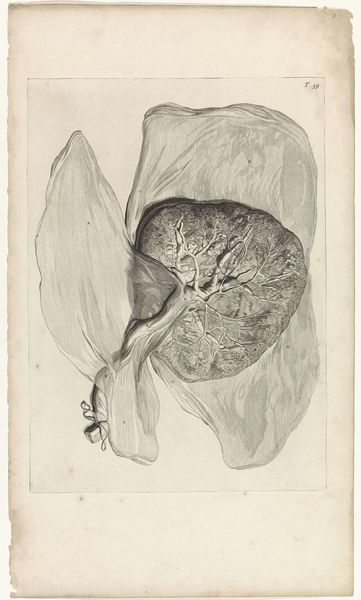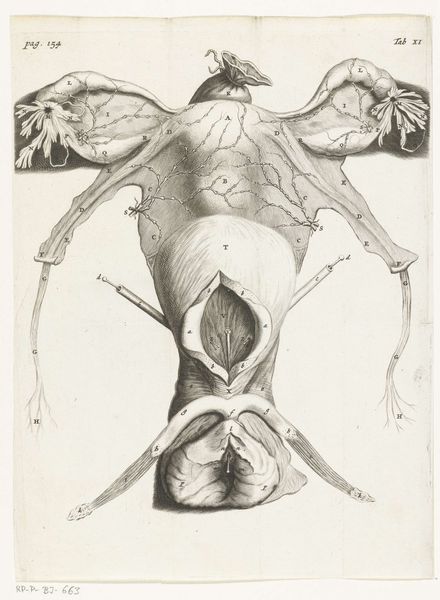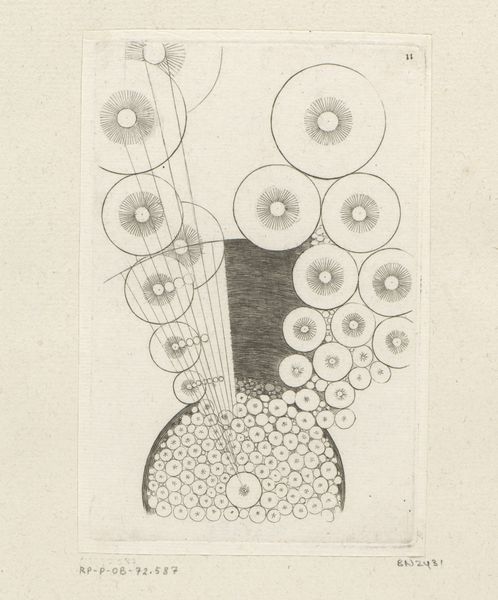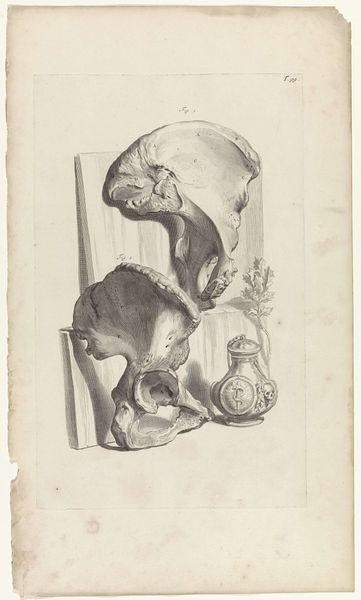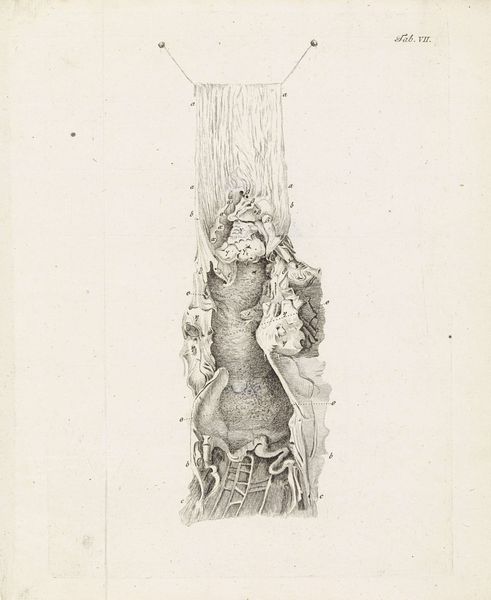
Anatomische afbeelding van een konijnenfoetus in de baarmoeder en van de placenta 1672
0:00
0:00
hendrikbary
Rijksmuseum
drawing, print, etching, engraving
#
drawing
#
baroque
# print
#
etching
#
old engraving style
#
history-painting
#
academic-art
#
engraving
Dimensions: height 140 mm, width 80 mm
Copyright: Rijks Museum: Open Domain
This anatomical study of a rabbit foetus was made by Hendrik Bary sometime between 1640 and 1707. It's an engraving, which means that the image was incised into a metal plate, likely copper, using a tool called a burin. The engraver’s skill is apparent in the fine lines that define form and texture, from the delicate fur of the foetus to the complex structure of the placenta. The process involved a laborious transfer of knowledge – the scientific observation of anatomy into the language of the print. It was an exacting task, demanding precision and control. Engravings like this weren't just about aesthetics; they were crucial for disseminating knowledge at a time when printing was the primary means of mass communication. The labor-intensive nature of engraving made it a skilled trade, positioning the printmaker as a vital intermediary between scientific discovery and public understanding. This image reminds us that even seemingly technical illustrations are deeply embedded in social and economic practices.
Comments
No comments
Be the first to comment and join the conversation on the ultimate creative platform.
